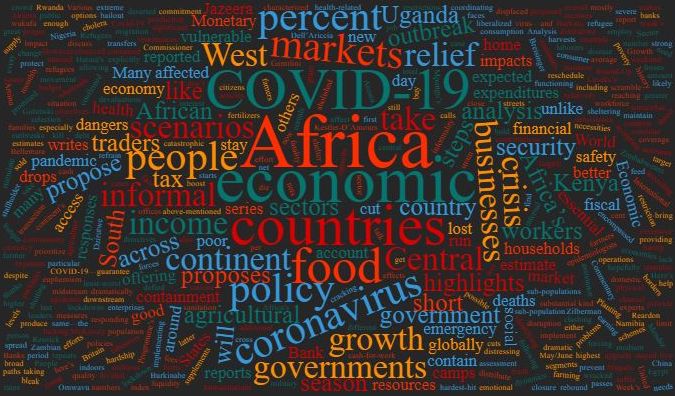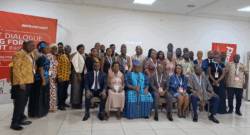-Reshaping Our Educational System; Prioritising STEM Education.
COVID-19 is not the first global pandemic the world has faced in recent history, but the implications and impact are unlike anything most of us have experienced in our lifetimes. It compelled each country to solely rely on its own natural and human resources to survive. It has also exposed weaknesses in all sectors of the economy and provided us with the opportunity to make meaningful reforms and decisions.
As education enters its turning point, there are several reforms we need to undertake to make education relevant to reflect the 21st-century economy. The carefully designed new curriculum for KG to Primary 6 and the Common Core Programme (CCP) for JHS 1 to SHS indicates our readiness to transform our country’s education to reflect the 21st-century economy. Nevertheless, we must give STEM Education all the attention it needs in our quest for this remarkable transformation.
The passion, drive, and innovative thinking of scientists and STEM professionals emerge very quickly to be of service to communities around the globe who were grappling with COVID-19. STEM communities including Noguchi Memorial Institute published full genomes of the new coronavirus, Virologists explains the origin, behaviour, and future of the virus and possible treatment within an incredibly short period.
The tech sector also jumped on board quickly, leveraging artificial intelligence and cloud computing to organize and process data for statistical decisions, designing simulation, developing contact tracing apps, improving online banking, and providing Zoom virtual meetings and learning.
The Innovations and role of the STEM community in the fight were numerous and magnificent which never happened by a miracle but were skills gain from conscious STEM training and education. STEM is an economic driver.
What is STEM?
STEM stands for science, technology, engineering, and mathematics. STEM integrates learning through interdisciplinary studies. It affords the application of 21st-century learning skills.
Such as Critical thinking, Creativity, Collaboration, Communication, Information literacy, Media literacy, Technology literacy, and Flexibility. STEM activities provide hands-on and minds-on lessons and skills students need for success beyond their formal education and inspire students to be lifelong learners.
STEM curriculum
A curriculum that is STEM-based has real-life situations to help the student learn. It stresses technology to connect the subjects and relating teaching to our immediate environment. STEM spreads the curriculum in ways subjects taught in isolation cannot.
How many times have students asked why they have to learn something? They do not understand how their topic of study relates to the real world beyond their classroom walls. Instead, students bemoan having to learn something they assume they will never use again. STEM address this challenge. STEM in education is both a curriculum and pedagogy.
STEM pedagogy
STEM pedagogy contains five principles that allow students to work as professionals within the disciplines of science, technology, engineering, and math while solving real-world problems in which they are interested.
STEM pedagogy also leads students to a deeper understanding of content while solving ill-defined problems. This type of pedagogy is not only good practice with “gifted students”, rather all students benefit from instruction rich in context and concepts.
STEM education requires a pedagogical shift to student-centred learning with questioning strategies to challenge students to think using higher cognitive processes.
In addition, much of the instruction is inquiry-based, experimental, and project-based lessons that encourage critical thinking and innovation while building student understanding of concepts.
STEM Benefits
STEM education has got numerous benefits which include, building resilience, fostering ingenuity and creativity, encouraging experimentation, teamwork, knowledge application, encouraging tech use, encouraging adaption, problem-solving and critical thinking.
STEM Skills
These skills are high in demand in all sectors and critical to individual employability and career success. These include problem-solving skills, creativity, inquiry skills, maths and science skills, intellectual curiosity, engineering and designing skills, critical thinking, collaboration, analytical skills, innovation, communication skills, argumentation skills, adaptability, and balanced life.
STEM Careers / Occupations
STEM careers are male-dominated and high in demand with fat wages.
There are hundreds of STEM Occupations, these include Biomedical Engineer, Forensic Science Technician, Environmental Engineer, Epidemiologist/Medical Scientist, Financial Analyst, Civil Engineer, Mathematician, and Statistician.
Ghana’s steps towards STEM Education.
Centre for Excellence in Education (CEE) has developed an index of STEM education preparedness.
The index gives our policy-makers and educators an important tool to see how well our next generation of innovators compares to those in the rest of the world.
This tool is critical to any analysis of how we prepare the next generation of leaders. China is ranked first followed by Korea and the USA.
No African Country is among the top 29. Chinese success at STEM Olympiads has correlated with the growth of the Chinese economy.
To make a remarkable entry and impact in the STEM index, Ghana has set up about 30 STEM academies across the country encouraging youngsters especially females to consider STEM education.
Therefore, Ghana must make STEM a priority in order to build a resilient country. It will consist of reshaping our educational system and orienting it toward a skill-oriented educational system where young Ghanaians will be equipped with tools and skills needed to not only enter the job market but also prepare for the disruption of the future of work.
The writer is with Prabon D/A Basic School, Bosomtwe District, Ashanti Region / Member, Institute of ICT Professionals Ghana.
For comments, contact [email protected] / +233249277160










